
Seven faculty members across the Neag School of Education have recently been awarded funding — totaling more than $10 million — by the U.S. Department of Education’s Institute of Education Sciences (IES) for a range of education research projects. In addition, two Neag School alumni are part of grant projects newly funded by IES.
Writing and Language Experiences of Deaf and Hard of Hearing Students
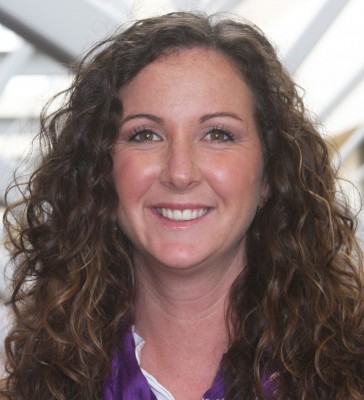
Hannah Dostal, associate professor of reading education, is co-principal investigator on a project that has been awarded $3.3 million as part of a four-year research grant in collaboration with the University of Tennessee. The project, titled “An Efficacy Study of Strategic and Interactive Writing Instruction (SIWI): Teacher Development and Student Outcomes,” focuses on writing instruction for deaf and hard of hearing (d/hh) students. According to the researchers, the project seeks to “build teacher capacity to provide instruction that draws upon evidence-based literacy practices while accommodating individual language differences of the d/hh.” Funding begins this August.
The research, involving several dozen third- through sixth-grade teachers and several hundred d/hh students diverse by hearing loss, language, ethnicity, and socioeconomic status, will seek to determine what impact professional development in Strategic and Interactive Writing Instruction (SIWI) has on the knowledge, instruction, and efficacy of teachers in this area, and will also examine the impact of SIWI on d/hh students’ writing and language outcomes.
The SIWI professional development program is an approach to writing instruction that “incorporates cognitive strategy instruction for writing processes, apprenticeship through interactive and guided writing instruction, and strategies for responding to d/hh students’ specific language needs.”
Learn more about this project.
Career and Technical Education Program Impact in New York City
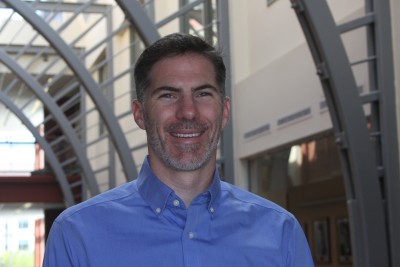
Shaun M. Dougherty, assistant professor of education and public policy, is co-principal investigator on a project titled “Assessing the Implementation, Impact, & Variation of CTE Innovation: NYC as a Lab for Rigorous CTE Research,” which has been awarded $3.1 million over four years. James Kemple, Meryle Weinstein, and Sean Corcoran of New York University; and Adriana Villavicencio of the Research Alliance for New York City Schools; and Rebecca Unterman of MDRC (Manpower Demonstration Research Corporation) are also co-principal investigators on the project.The project is focused on estimating the causal impact of New York City’s career technical education (CTE) programs on students’ career and work-related learning experiences; social and behavioral competencies; high school diploma receipt; and transitions to college and the labor market.
Encompassing a total of three studies, the research will include about 60,000 New York City students who enrolled in one of more than 200 CTE programs as first-time ninth-graders between 2014 and 2016, with a similar number of students who enrolled in other high school options serving as a control group. In addition, long-term outcomes of another 120,000 students who enrolled in CTE programs between 2008 and 2013 will be tracked by the research team.
“Despite the proliferation of CTE programs, only a few studies can make causal claims about the impact of CTE participation on student outcomes,” according to the research team. “Findings from this study will inform CTE policy and practice for New York City, New York state, the federal government, and other states about the direction and evolution of urban educational reforms focused on leveraging CTE as a mechanism to improve college and career readiness while aligning with labor market needs.”
Learn more about this project.
Research on Gifted Education
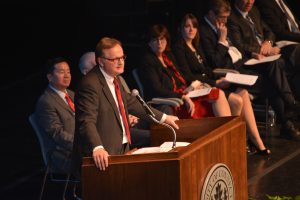
The National Center for Research on Gifted Education (NCRGE), led by Del Siegle, Neag School Associate Dean for Research and Faculty Affairs, has received through IES a $2 million grant for two additional years of research. The grant will fund continuation of research work by the Center, which was initially launched in 2014 with funding authorized through the Jacob K. Javits Gifted and Talented Students Education Act. NCRGE is the only national center on gifted education funded by the federal government.
With this additional funding, the Center will investigate the effect of attending dedicated gifted classes in core content areas on underserved students’ academic achievement in reading/language arts and mathematics. The Center will compare the reading/language arts and mathematics achievement of gifted students in three different settings:
- Schools offering a full-time, gifted-only program with gifted classes in all subject areas;
- Schools offering a part-time, gifted-only program with gifted classes in mathematics; and
- Schools offering a part-time, gifted-only program with gifted classes in reading/language arts.
The research will occur in a large, ethnically, economically, and linguistically diverse urban school district.
In addition to Siegle, other key Neag School faculty researchers involved in the Center’s work include D. Betsy McCoach, E. Jean Gubbins, and Christopher Rhoads,. Other researchers involved include faculty from the University of Virginia.
Learn more about this project.
Global Education Through Online, Problem-Based Learning Simulations
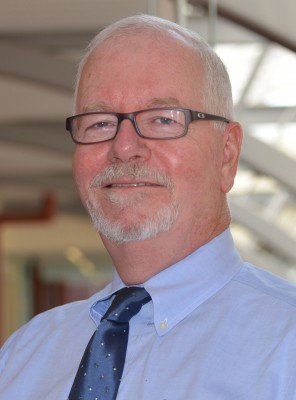
Board of Trustees Distinguished Professor Scott Brown is co-principal investigator on a newly announced three-year, $1.2 million grant in support of a project titled “Refinement of GlobalEd2 and Testing New Intervention Impact.” Neag School alumna Kimberly Lawless ’94 MA, ’96 Ph.D., now associate dean of research at University of Illinois at Chicago’s College of Education, serves as principal investigator.
This project is a continued refinement of the GlobalEd 2, or GE2, Project on STEM literacy, which originally began in 2008 with funding from IES. GE2 is a computerized, problem-based social studies game that gives middle-school students an opportunity to learn about geography, government, human rights, the environment, and other real-world issues by assigning classrooms to work remotely with other classrooms via online simulations, email, and web-based channels on negotiating international agreements on solutions to water resources, food security, climate change, and other socio-scientific topics.
In 2013, GlobalEd 2 received additional IES funding of more than $3 million. The new grant extends funding for GlobalEd through June of 2020.
Products of this project will include “a revised GE2 curriculum; evidence of its efficacy for improving middle school students’ science literacies — including science knowledge and process skills; and peer-reviewed publications,” state the researchers. The study will take place in seventh- and eighth-grade social studies classrooms in Illinois and Connecticut.
Learn more about this project.
Online Reading in Science Among Teens
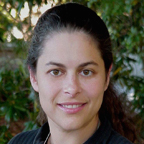
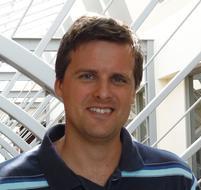

Principal investigator Donald Leu and co-principal investigators Christopher Rhoads and D. Betsy McCoach were awarded a two-year, $600,000 grant for a project titled “Factors Affecting Comprehension by Teens During Online Reading in Science: The FACTORS Project,” which seeks to “explore malleable factors, moderators, and mediators for online reading success among adolescents in the discipline of science.”
The FACTORS Project will involve a series of studies to determine the extent to which the following factors correlate with online research and comprehension outcomes:
- Teacher internet use
- Student internet use
- Student motivation for online reading, and
- One-to-one classroom laptop access
A qualitative study also will evaluate student and teacher perceptions of effective instruction for online information use within disciplinary subjects. Data will be analyzed from a sample of more than 1,300 seventh-graders from Maine and Connecticut.
“The ability to read and learn from online information is essential for full participation in today’s society, but the ability of our youth in this area appears to be surprisingly limited,” state the researchers in the project narrative, pointing to recent studies, one of which showed that fewer than 4 percent of students were able to complete successfully the tasks required to read and evaluate the source reliability of a single website.
They argue, however, that “it is premature to begin developing and evaluating interventions that would impact online reading. … First, we have lacked valid and reliable assessments of online reading comprehension, limiting our ability to evaluate performance. Second, we have virtually no data about potentially malleable factors that are most likely to influence online reading performance, not to mention mediators and moderators of these factors. As a result, the development of instructional models for online reading comprehension would be based more on hunches and best guesses, not science.”
Ultimately, the FACTOR Project seeks to “enable the field to design scientifically based instructional interventions for testing.”
Learn more about this project.
Supporting Educators of Diverse Students With or at Risk for Disabilities
Neag School alumna Lindsay Fallon ’09 MA, ’11 6th Year, ’13 Ph.D., assistant professor of counseling and school psychology at UMass-Boston, has received a four-year, $400,000 IES Early Career Development and Mentoring Competition grant for a project titled “Validation of the Assessment of Culturally and Contextually Relevant Supports (ACCReS): Supporting Educators of Diverse Students With or at Risk for Disabilities.” Among her mentors is the Neag School’s George Sugai, professor of special education.
Through her research, Fallon will seek to “improve teachers’ use of evidence-based, culturally and contextually relevant academic and behavioral classroom practices.” She also “intends to further develop and validate a teacher self-assessment, the Assessment of Culturally and Contextually Relevant Supports (ACCReS).” Results of this self-assessment can be used to identify professional development needs and strengthen educators’ delivery of academic and behavior supports to culturally and linguistically diverse students with or at risk for disabilities in K-12.
Learn more about this project.
Related Stories:



